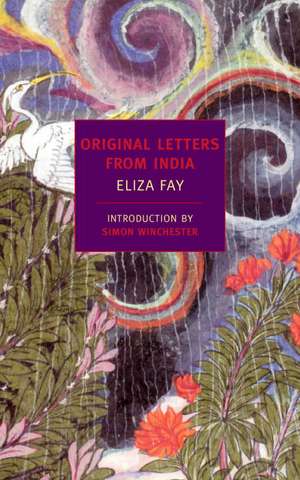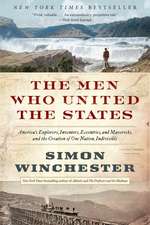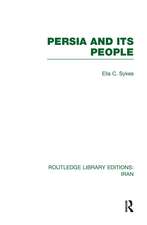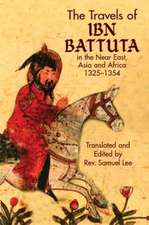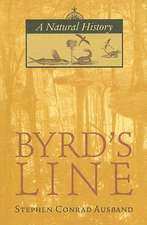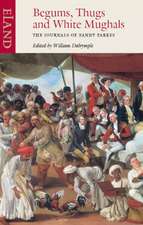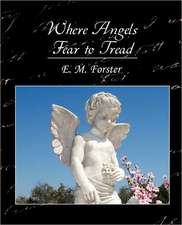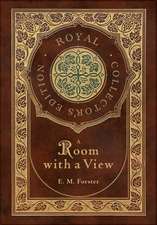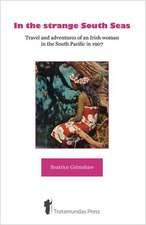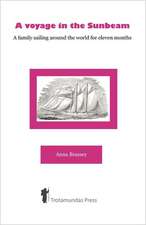Original Letters from India: New York Review Books Classics
Autor Eliza Fay Simon Winchester, E. M. Forsteren Limba Engleză Paperback – 31 ian 2010
When the intrepid Mrs. Fay departed from Dover more than two hundred years ago, she embarked on a grueling twelve-month journey through much of Europe, up the Nile, over the deserts of Egypt, and finally across the ocean to India. Along the way her party encountered wars, territorial disputes, brigands, and even imprisonment.
Fay was a contemporary of Jane Austen, but her adventures are worthy of a novel by Daniel Defoe. These letters—unfiltered, forthright, and often hilarious—bring the perils and excitements of an earlier age to life.
Din seria New York Review Books Classics
-
 Preț: 88.86 lei
Preț: 88.86 lei -
 Preț: 99.24 lei
Preț: 99.24 lei - 16%
 Preț: 79.25 lei
Preț: 79.25 lei -
 Preț: 77.73 lei
Preț: 77.73 lei -
 Preț: 124.55 lei
Preț: 124.55 lei -
 Preț: 98.73 lei
Preț: 98.73 lei -
 Preț: 83.30 lei
Preț: 83.30 lei -
 Preț: 182.63 lei
Preț: 182.63 lei -
 Preț: 102.47 lei
Preț: 102.47 lei -
 Preț: 76.46 lei
Preț: 76.46 lei -
 Preț: 174.64 lei
Preț: 174.64 lei -
 Preț: 110.73 lei
Preț: 110.73 lei -
 Preț: 119.57 lei
Preț: 119.57 lei -
 Preț: 94.01 lei
Preț: 94.01 lei -
 Preț: 119.36 lei
Preț: 119.36 lei -
 Preț: 101.24 lei
Preț: 101.24 lei -
 Preț: 85.97 lei
Preț: 85.97 lei -
 Preț: 142.67 lei
Preț: 142.67 lei -
 Preț: 102.25 lei
Preț: 102.25 lei -
 Preț: 103.29 lei
Preț: 103.29 lei -
 Preț: 113.30 lei
Preț: 113.30 lei -
 Preț: 100.59 lei
Preț: 100.59 lei -
 Preț: 126.41 lei
Preț: 126.41 lei -
 Preț: 107.40 lei
Preț: 107.40 lei -
 Preț: 174.03 lei
Preț: 174.03 lei -
 Preț: 107.44 lei
Preț: 107.44 lei -
 Preț: 89.27 lei
Preț: 89.27 lei -
 Preț: 85.34 lei
Preț: 85.34 lei -
 Preț: 90.09 lei
Preț: 90.09 lei -
 Preț: 96.42 lei
Preț: 96.42 lei -
 Preț: 99.60 lei
Preț: 99.60 lei -
 Preț: 85.16 lei
Preț: 85.16 lei -
 Preț: 127.42 lei
Preț: 127.42 lei -
 Preț: 87.20 lei
Preț: 87.20 lei -
 Preț: 136.91 lei
Preț: 136.91 lei -
 Preț: 105.17 lei
Preț: 105.17 lei -
 Preț: 161.86 lei
Preț: 161.86 lei -
 Preț: 90.72 lei
Preț: 90.72 lei -
 Preț: 88.86 lei
Preț: 88.86 lei -
 Preț: 94.83 lei
Preț: 94.83 lei -
 Preț: 120.63 lei
Preț: 120.63 lei -
 Preț: 133.18 lei
Preț: 133.18 lei -
 Preț: 95.45 lei
Preț: 95.45 lei -
 Preț: 97.50 lei
Preț: 97.50 lei -
 Preț: 81.66 lei
Preț: 81.66 lei -
 Preț: 111.96 lei
Preț: 111.96 lei -
 Preț: 100.18 lei
Preț: 100.18 lei -
 Preț: 75.23 lei
Preț: 75.23 lei -
 Preț: 91.13 lei
Preț: 91.13 lei -
 Preț: 94.86 lei
Preț: 94.86 lei
Preț: 100.93 lei
Nou
Puncte Express: 151
Preț estimativ în valută:
19.31€ • 20.16$ • 15.98£
19.31€ • 20.16$ • 15.98£
Carte disponibilă
Livrare economică 14-28 martie
Livrare express 27 februarie-05 martie pentru 21.92 lei
Preluare comenzi: 021 569.72.76
Specificații
ISBN-13: 9781590173367
ISBN-10: 1590173368
Pagini: 288
Dimensiuni: 129 x 202 x 15 mm
Greutate: 0.29 kg
Editura: NEW YORK REVIEW OF BOOKS
Seria New York Review Books Classics
ISBN-10: 1590173368
Pagini: 288
Dimensiuni: 129 x 202 x 15 mm
Greutate: 0.29 kg
Editura: NEW YORK REVIEW OF BOOKS
Seria New York Review Books Classics
Notă biografică
Eliza Fay (1756–1816) is thought to have been born in Blackheath, South London. Very little is known for certain about her background, even her maiden name is a mystery. Her father may have been a sailor, and it is possible that she trained as a dressmaker in France. Her recorded life begins with her marriage to the Irish lawyer Anthony Fay when she was in her early twenties. Not long after, the pair embarked on their voyage to India. The haphazard nature of the journey has led to speculation that Anthony was sent to Calcutta to prepare for the eventual impeachment of Sir Elijah Impey, chief justice of Bengal. The couple separated only a few years after settling in Calcutta, and Mrs. Fay returned to England. Striking out on her own, she made several more trips to India in conjunction with a variety of ruinous business schemes, including one that brought her to New York. She died at the age of sixty, penniless, in Calcutta.
E.M. Forster (1879–1970) was a critic and novelist. Among his books are A Room with a View, A Passage to India, Howards End, and Aspects of the Novel. He discovered Eliza Fay’s Letters while living in India in 1921–22 and published two articles about her journey before compiling the notes that were originally published in the 1925 edition of the book.
Simon Winchester is the author of, among other titles, The Professor and the Madman, Krakatoa, The Map That Changed the World, and The Man Who Loved China. He has written two books relating to India, where he was based as a foreign correspondent from 1976–1979, Stones of Empire (with Jan Morris) and, most recently Calcutta. His newest book is Atlantic: A Biography of the Ocean. He lives in New York and the Berkshires.
E.M. Forster (1879–1970) was a critic and novelist. Among his books are A Room with a View, A Passage to India, Howards End, and Aspects of the Novel. He discovered Eliza Fay’s Letters while living in India in 1921–22 and published two articles about her journey before compiling the notes that were originally published in the 1925 edition of the book.
Simon Winchester is the author of, among other titles, The Professor and the Madman, Krakatoa, The Map That Changed the World, and The Man Who Loved China. He has written two books relating to India, where he was based as a foreign correspondent from 1976–1979, Stones of Empire (with Jan Morris) and, most recently Calcutta. His newest book is Atlantic: A Biography of the Ocean. He lives in New York and the Berkshires.
Recenzii
“The Letters put Raiders of the Lost Ark in the category of timid and passive inactivity.” —The Courier-Mail
“In [the letters] we discover India through a woman blessed with unusual vitality and great humanity, a lively eye and a sharp ear. . . . In her exuberant presence we quickly come to see why Forster rated her ‘a work of art.'"—Francis Robinson, History Today
“Born in a country where caste was life, she had no caste to speak of, and she had no husband worth mentioning in an age when a woman could scarcely survive without one. Yet she survived. . . . Her sharp unsentimental middle-class eyes saw through the vanities of this world.” —Katherine Anne Porter, The New Republic
“Were she only frank and naïve, it would be something, but she is much more: a soul courageous and gallant, an eye and ear always on the watch. . . . Though [her letters] have value historically, their main interest is human: they show us a highly remarkable character, triumphant over the difficulties of life and narrative style.” —E. M. Forster
“In [the letters] we discover India through a woman blessed with unusual vitality and great humanity, a lively eye and a sharp ear. . . . In her exuberant presence we quickly come to see why Forster rated her ‘a work of art.'"—Francis Robinson, History Today
“Born in a country where caste was life, she had no caste to speak of, and she had no husband worth mentioning in an age when a woman could scarcely survive without one. Yet she survived. . . . Her sharp unsentimental middle-class eyes saw through the vanities of this world.” —Katherine Anne Porter, The New Republic
“Were she only frank and naïve, it would be something, but she is much more: a soul courageous and gallant, an eye and ear always on the watch. . . . Though [her letters] have value historically, their main interest is human: they show us a highly remarkable character, triumphant over the difficulties of life and narrative style.” —E. M. Forster
